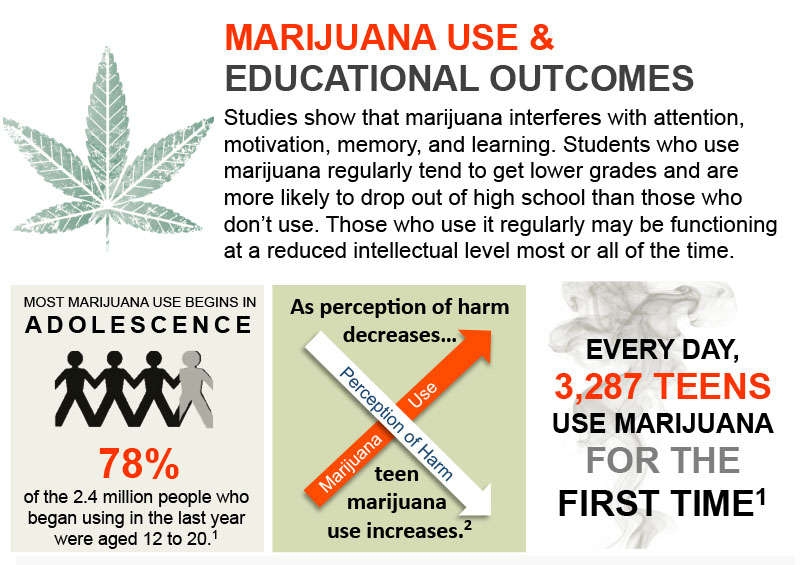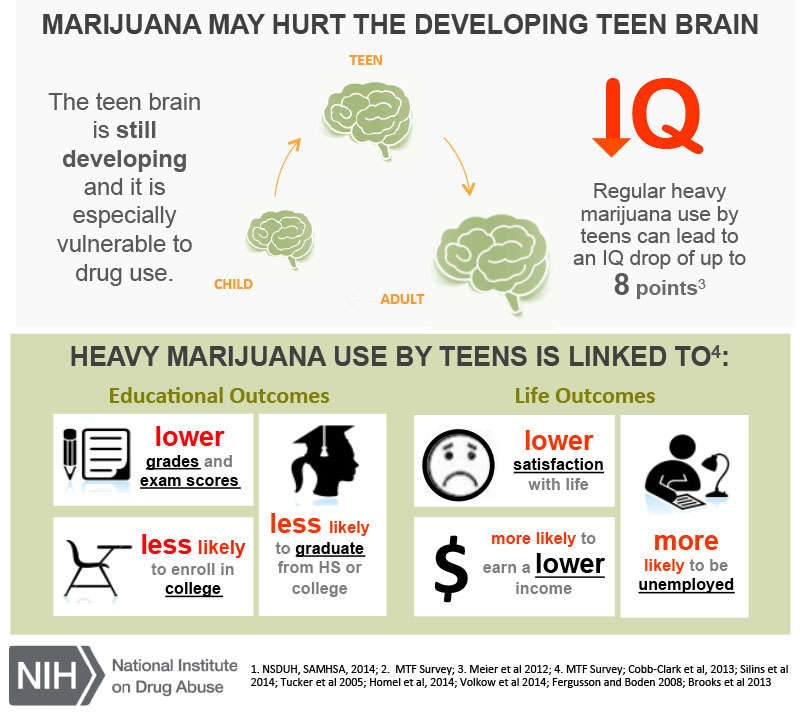Educational outcomes include lower grades and exam scores, lower enrollment in college, and lower rates of graduation from high school and college.
Marijuana Use & Educational Outcomes
Top Figure: Studies show that marijuana interferes with attention, motivation, memory, and learning. Students who use marijuana regularly tend to get lower grades and are more likely to drop out of high school than those who don’t use. Those who use it regularly may be functioning at a reduced intellectual level most or all of the time.
- Most Marijuana Use Begins in Adolescence: 78% of the 2.4 million people who began using in the last year were aged 12 to 20.1
- As perception of harm decreases, teen marijuana use increases.2
- Every Day, 3,287 Teens Use Marijuana for the First Time1
Bottom Figure: Marijuana may hurt the developing teen brain. The teen brain is still developing and it is especially vulnerable to drug use. Regular heavy marijuana use by teens can lead to an IQ drop of up to 8 points.3
Heavy marijuana use by teens is linked to:4
- Educational Outcomes:
- lower grades and exam scores
- less likely to enroll in college
- less likely to graduate from HS or college
- Life Outcomes:
- lower satisfaction with life
- more likely to earn a lower income
- more likely to be unemployed
1. NSDUH, SAMHSA, 2014; 2. MTF Survey; 3. Meier et al 2012; 4. MTF Survey; Cobb-Clark et al, 2013; Silins et al 2014; Tucker et al 2005; Homel et al, 2014; Volkow et al 2014; Fergusson and Boden 2008; Brooks et al 2013
This publication is available for your use and may be reproduced in its entirety without permission from NIDA. Citation of the source is appreciated, using the following language: Source: National Institute on Drug Abuse; National Institutes of Health; U.S. Department of Health and Human Services.


